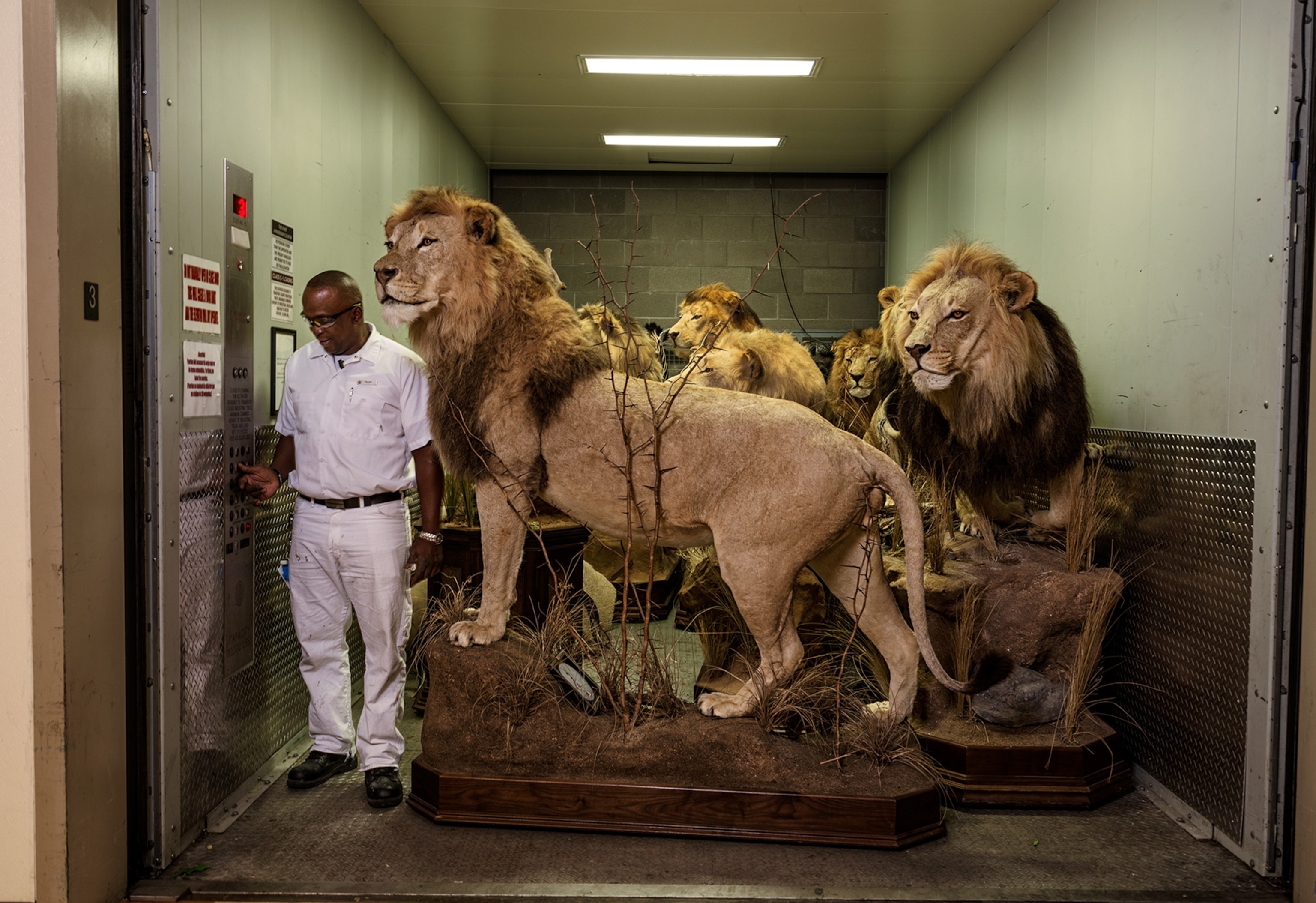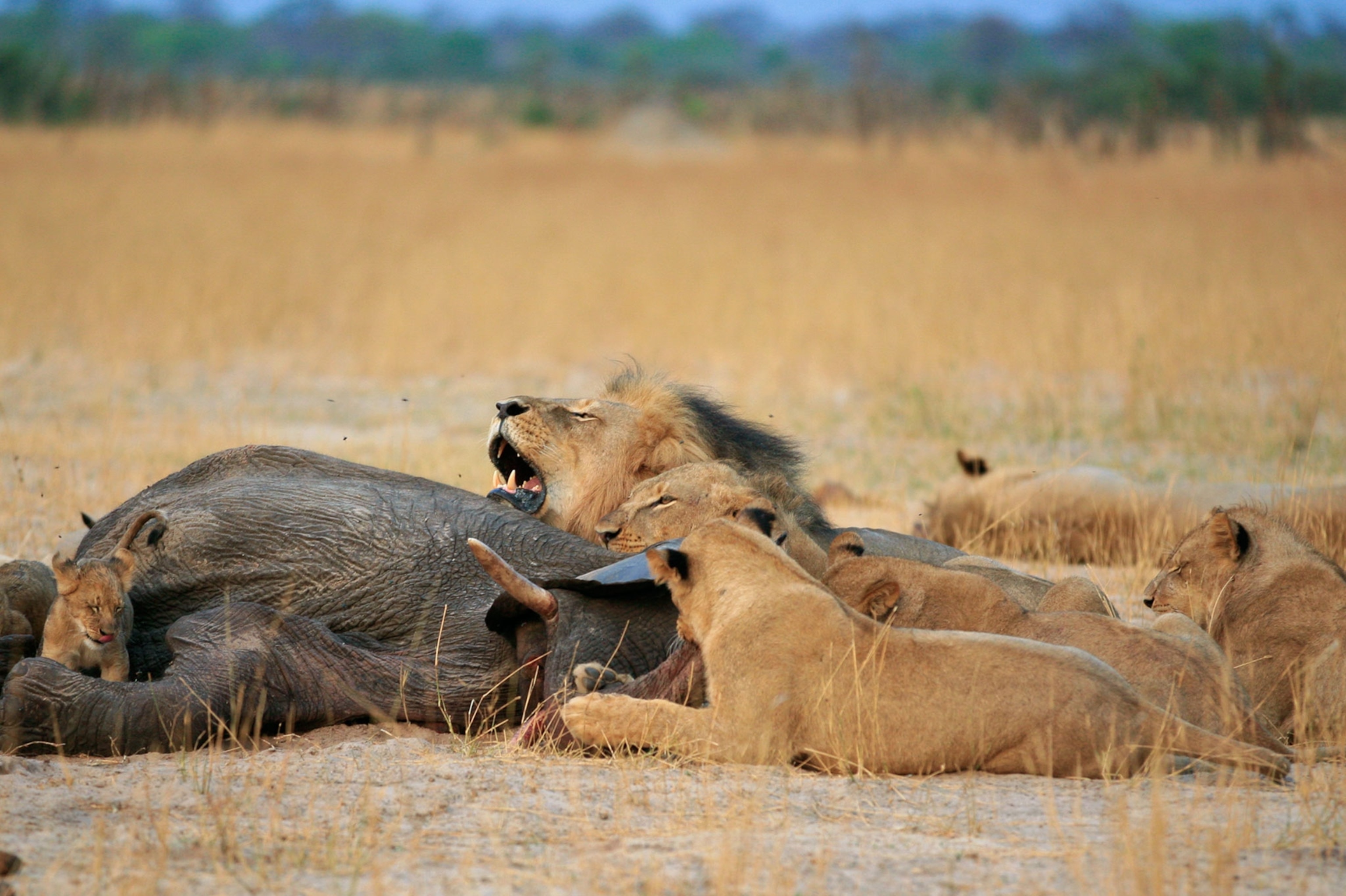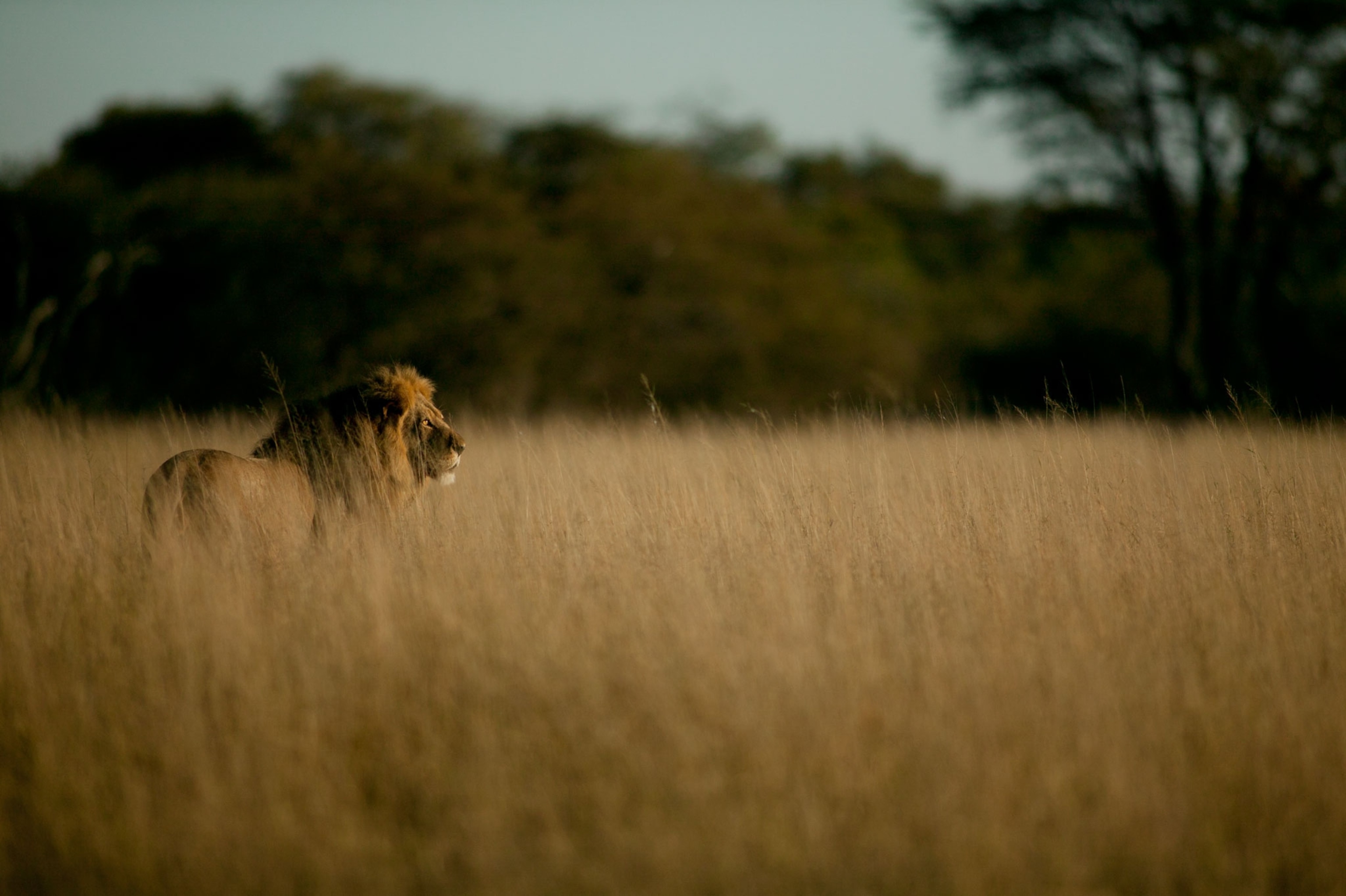
Controversial Auction to Permit Killing of 600 Wild Animals
Protesters are taking aim at hunting permit auctions in post-Cecil world.
The world's largest trophy hunting organization is again selling hundreds of permits to kill lions, bears, foxes, deer, sheep, and many other animals.
Billed as the "Ultimate Hunters' Market," the annual Safari Club International auction offers chances to hunt at least 600 animals in 32 countries in Africa, Europe, Oceana, and the Americas—77 of the hunts are in the U.S. The ongoing, five-day auction and convention event is expected to draw 20,000 bidders to Las Vegas, as well as many more potential buyers online. It will also likely raise millions of dollars. Last year, the club brought in $2.7 million from the auction of 317 hunts.
The sale comes a few days after the Dallas Safari Club held a similar event in Texas, which attracted a record attendance of 51,000. It also comes as tensions over trophy hunting are as high as they've ever been.
Before he was suspended for killing the protected lion Cecil in Zimbabwe last summer, Minnesota dentist Walter Palmer was a member of Safari Club International. According to a spokesperson, Palmer believed the hunt was legal and he had purchased a valid permit through his guides in Africa. (Zimbabwe's government disputed this and charged the local guides with poaching.)
After Cecil was killed, thousands of people took to the web in outrage and protestors lined up in front of Palmer's dental practice. The anger was powered largely by social media, which not only spread the news of Cecil's death, but also let opponents of trophy hunting easily access the pictures of hunts that were previously kept largely in the domain of hunting communities.
"These conventions have been happening for years but the public was largely not aware of them. Cecil really shed light onto trophy hunting," says Masha Kalinina, a policy specialist with the Humane Society International in Washington, D.C. "The juxtaposition of a proud, smiling hunter and a bloodied rhino is something that intuitively people find troubling. Now that these photos are being posted to Facebook and Instagram its fueling public outrage."
At times, that outrage has boiled over to death threats and FBI investigations. But there are signs that protestors are being heard. Noticeably absent from this year's auction are permits for rhino hunts, which touched off the most anger in previous years. And a number of businesses have tried to distance themselves from trophy hunting; several airlines around the world have moved to prohibit the transport of animal parts.
Supporters say the hunts raise valuable dollars for conservation, bring money to economically depressed areas, and remove old or problem animals that may prevent younger animals from breeding.
Melissa Simpson, director of conservation for the Safari Club International Foundation, previously wrote in an opinion piece for National Geographic’s website: “As with the regulated hunters in the United States, the regulated hunters in Africa make a vital contribution to conservation efforts, primarily through the revenues their hunting expeditions generate for local communities and wildlife resource agencies.”
Last year, after the Dallas Safari Club auctioned off a permit to shoot a black rhino to raise money for conservation, the club said: “Lawful, ethical, vigilant hunters play an important role in public acceptance of sustainable hunting as a vital tool for modern wildlife conservation and management.”
Dallas Safari Club president Ben Carter previously told National Geographic that regulated trophy hunting is a tool that wildlife managers use to keep animal populations healthy and strong. “By removing counterproductive individuals from a herd, [populations] can actually grow," Carter said.
But Kalinina says trophy hunting isn't sustainable and can't reliably generate real value for conservation because too much of the money gets siphoned off by corruption or into projects that sometimes run counter to helping animals, such as building roads. She says her group is therefore calling on Las Vegas to avoid holding conventions that promote what she calls "bloodsport."
In the past conservation hunting received more support from mainstream groups like the World Wildlife Fund, but the ranks of supporters appear to be thinning.
The Safari Club International's auction is their biggest fundraiser of the year, responsible for 62% of the club's annual revenue (the Safari Club has not yet responded to a request for comment). Although the group presents itself as a conservation organization, it also has taken positions on issues that have sometimes put it at odds with other conservationists. The club advocates for opening more U.S. federal land to hunters and lobbies against trophy bans.
While some see rising support for animal welfare and growing anger against trophy hunting, many hunters remain committed to their sport. Possibly as a result of the increased publicity, the membership of the Dallas Safari Club has surged and is starting a national network of chapters. On the other hand, the president of the Professional Hunters’ Association of South Africa asked his membership to reconsider its position on hunting lions in private reserves in the wake of Cecil's death.
This story was updated at 5:00 pm ET on February 2.
Read more stories about wildlife crime and exploitation on Wildlife Watch. Send tips, feedback, and story ideas to ngwildlife@natgeo.com.






